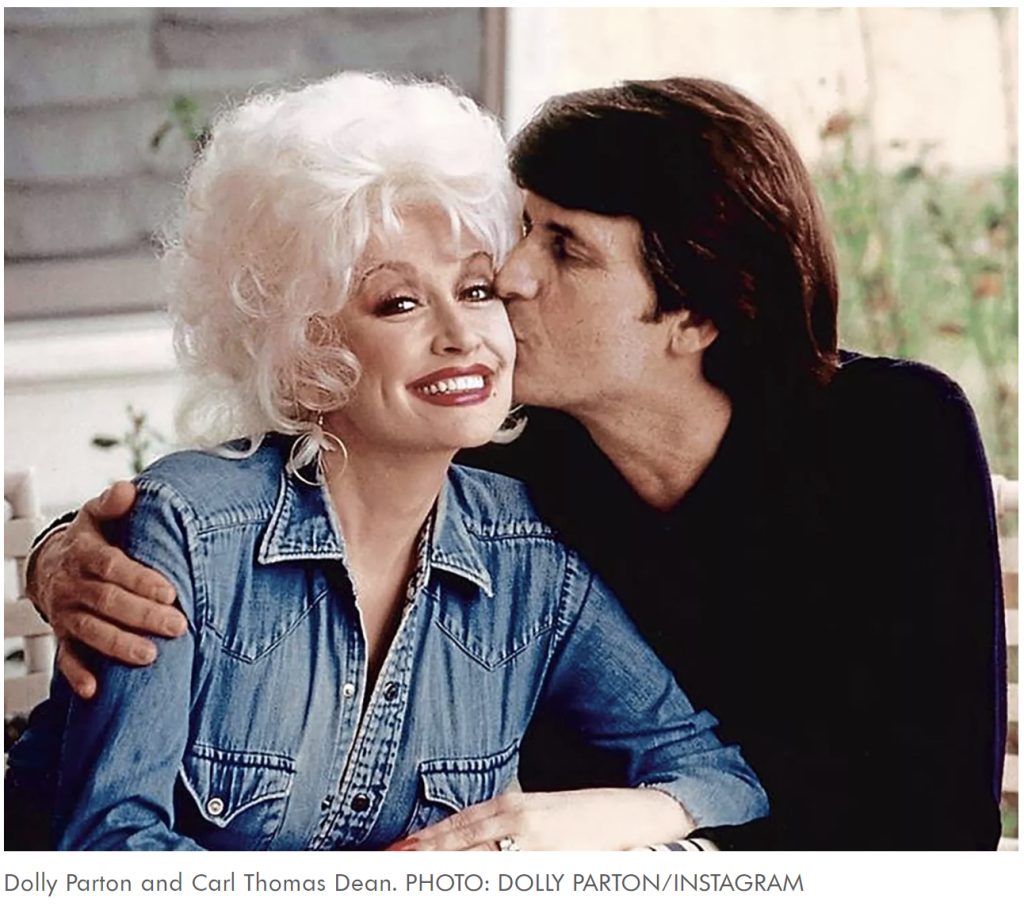Estimated reading time: 5 minutes

Thanks to extensive studies on thousands of couples and emerging research on relationships, we now have more answers to the age-old question: Will your relationship last? The science of why some couples stay happily together can be studied and the skills learnt. Dolly Parton and her husband of 58 years, Carl Thomas Dean pictured above, are just one example of a couple who have mastered these relational skills.
Psychologists highlight that certain behaviours—such as how a couple communicates, handles conflict, and even the types of dates they go on—can be learned and practiced to improve the chances of a relationship lasting. Drs. John and Julie Gottman’s fifty years of research provide valuable insights into these essential relationship skills. Dr. Sue Johnson’s book, Love Sense, also delves into what scientific research has revealed about sustaining long-lasting love.
Do you want to know what really works to keep your relationship strong? Recent studies point to the seven key points below:
Small Gestures Make a Big Difference
In the Early Years of Marriage Project, Dr. Terri Orbuch found that three-quarters of happy couples frequently made each other feel special, compared to less than half of unhappy couples. Small acts, like leaving a thoughtful note or offering a shoulder massage after a long day, are powerful ways to express care and love. According to the Gottman Institute, doing small things often significantly predicts relationship satisfaction and reduces the likelihood of separation.
Men Especially Require Affirmation
Interestingly, men who didn’t feel affirmed by their partners were twice as likely to separate compared to those who did. While women in heterosexual relationships often receive emotional affirmation from other sources like friends and family, men rely more on their partners for this support. In LGBTQ+ relationships, affirmation needs are equally present. Making regular affirmations and appreciations to your partner are a crucial element of any healthy relationship.
Handle Conflict with Kindness
Dr. John Gottman’s research found that 69% of couples’ conflicts remain unresolved. But it’s how couples manage these disagreements that makes the difference. Successful couples handle conflict with gentleness and consideration, softening their approach when bringing up difficult issues. Dr. Terry Real stresses the need to deal with our inevitable differences in moderate and respectful ways. Treating your partner respectfully, as you would your best friend, promotes a stable, happy relationship.
Kindness, moderation and respect build your immunity to the three most common causes of relationship unhappiness. These deadly relationship behaviours are the 3A’s – Addictions, Affairs & Anger (which includes any acting out or unmanaged mental health issues).
High intensity anger with verbal or physical abuse dramatically brings an end to the relationship and your well being. If you’re with a partner who tries to control you through anger, that is a recipe for relationship failure. Immediately call RESPECT.
Meaningful Conversations Matter
Couples who communicate about more than just daily tasks and chores tend to have stronger connections. Dr. Orbuch suggests that couples should spend time sharing their hopes, dreams, and fears, not just the to-do list. Dr. Gottman refers to these deeper conversations as exploring the “existential area,” where couples discuss their purpose, mission, and legacy together.
Celebrate the Good Times
Supporting your partner during good times can be just as, if not more, important than during tough times. Research shows that celebrating the positive moments strengthens the bond between partners and increases overall relationship satisfaction. Acknowledging and appreciating the good times acts as a preventive measure that boosts relationship happiness.
Embrace Variety and Novelty
Boredom can be one of the biggest threats to a relationship. Couples who engage in new and exciting activities together can reignite the spark they once had. Whether it’s going on adventurous dates or trying new hobbies together, novelty, fun and pleasure brings back the excitement of early romance. Research shows that partners are more satisfied with their relationships when they went on more exciting dates, such as hiking or going to parties. Those who stayed with to the safer “movie or dinner routine” didn’t have the same benefits.
Love Takes Effort
Perhaps the most important lesson is that lasting love requires conscious effort. Many studies show that maintaining a relationship, like any other commitment, takes ongoing work and learning.
Dr Ellyn Bader & Dr Peter Pearson from the Couples Institute say that businesses and relationships fail for the same three reasons.
A failure to:
•Learn from the past
•Adapt to changing conditions
•Predict probable future problems and take action to avoid these.
Couples who actively work on their relationship from the early days are more likely to succeed than those who wait until issues arise. Dr Terry Real recommends cherishing your partner and feeling lucky to have them in your life is an essential practice that builds long-term love. He has excellent skills to help you in Learning to Live a Non-Violent Life.
To learn the skills of making your relationship last, call 0421 961 687 or email us to schedule an appointment. International callers should call +61 421 961 687.
You deserve the best trained relationship coaches if you’re planning to invest time and money in your relationship. If you’re not ready to book an appointment, call us on 0421 961 687 to book a FREE 15 minute phone consultation to discuss how we may be able to assist you.

Leave a Reply